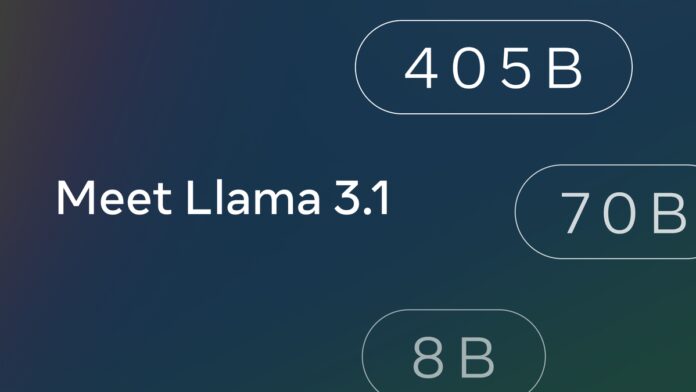[ad_1]
We’re publicly releasing Meta Llama 3.1 405B, which we believe is the world’s largest and most capable openly available foundation model.
– Meta blog, July 23, 2024
Llama 3.1 405B is “the first openly available model that rivals the top AI models” when it comes to state-of-the-art capabilities in general knowledge, steerability, math, tool use, and multilingual translation, Meta claims.With the release of the 405B model, Zuck’s team is promising to “supercharge innovation”.
As part of this latest release, Meta also introduced upgraded versions of the previous Llama 8B and 70B parameter sizes. “This enables our latest models to support advanced use cases, such as long-form text summarization, multilingual conversational agents, and coding assistants”, the article reads.
The team claims they’ve evaluated performance on over 150 benchmark datasets encompassing a wide range of languages. Additionally, extensive human evaluations were conducted to compare Llama 3.1 with competing models in real-world scenarios. The experimental evaluation suggests that the new flagship model is competitive with leading foundation models, including GPT-4, GPT-4o, and Claude 3.5 Sonnet, across various tasks.
Mark Zuckerberg: Open Source AI Is the Path Forward

Image credit – Meta
In addition to the announcement, there’s an open letter from Mark Zuckerberg that’s titled: “Open Source AI Is the Path Forward“.He takes the long way around and brings us back to the early days of high-performance computing: that’s when major tech companies “invested heavily in developing their own closed source versions of Unix”. Unix is a family of multitasking, multi-user computer operating systems.
Then, Zuck argues, Linux emerged as a game-changer due to its open source nature, allowing extensive customization, affordability, and ecosystem growth.
A game changer, if you will!
That’s why open source AI, (as Meta’s new Llama model), will follow a similar trajectory of rapid advancement and adoption, Meta’s CEO argues.
Meta is committed to open source AI. I’ll outline why I believe open source is the best development stack for you, why open sourcing Llama is good for Meta, and why open source AI is good for the world and therefore a platform that will be around for the long term.
– Mark Zuckerberg, July 23, 2024
His point is that the importance of open source for a positive AI future cannot be overstated. That’s because AI has, in theory, immense potential to boost human productivity, creativity, quality of life, and economic growth, while advancing medical and scientific research. Open source ensures broader access to AI benefits, prevents power from concentrating in a few companies.Safety concerns fall into two categories: unintentional harm, where AI systems cause damage without intending to, and intentional harm, where bad actors use AI maliciously. Most worries center on unintentional harm, which open source could, in theory, mitigate through transparency and widespread scrutiny.
When it comes to intentional harm, distinguishing between individual bad actors and resource-rich nation-states is crucial, Zuck argues and talks about “how the US and democratic nations should handle the threat of states with massive resources like China”.
Some people argue that we must close our models to prevent China from gaining access to them, but my view is that this will not work and will only disadvantage the US and its allies. Our adversaries are great at espionage, stealing models that fit on a thumb drive is relatively easy, and most tech companies are far from operating in a way that would make this more difficult. […] The bottom line is that open source AI represents the world’s best shot at harnessing this technology to create the greatest economic opportunity and security for everyone.
– Mark Zuckerberg, July 23, 2024
What side are you on? Would you like to see more or less open source US AI models?
[ad_2]
Source link
